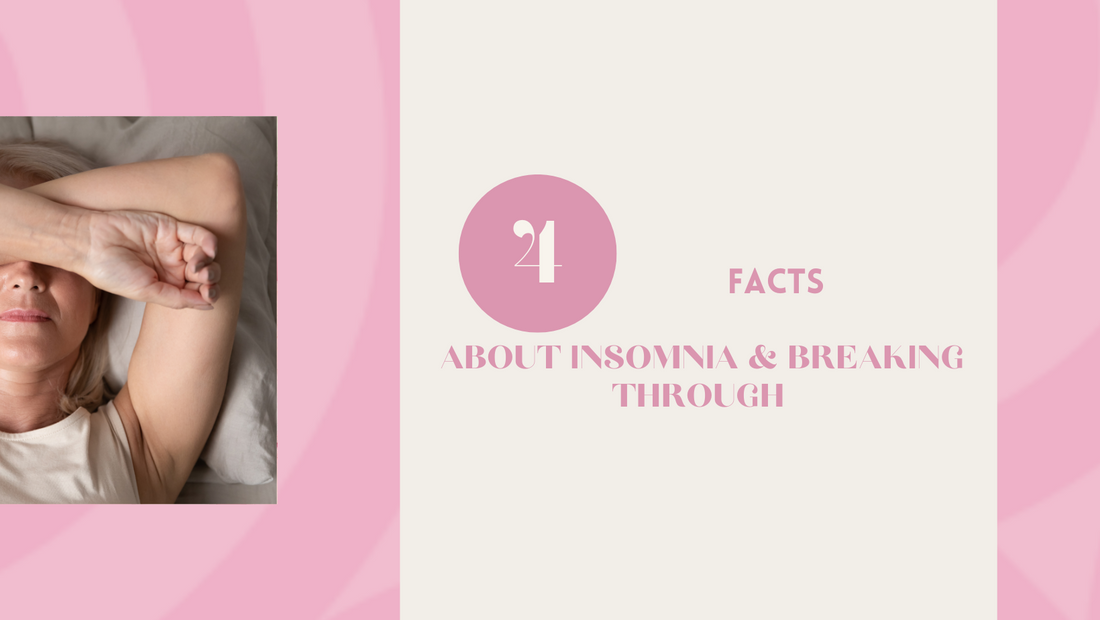
Why Can't I Fall Asleep?
Tired of being tired?
Personally this has been one of the biggest struggles in my life. Whilst temporarily 'fixed' whilst I was regularly drinking alcohol, and temporarily 'fixed' again when I stopped drinking alcohol. This has always been, for me, and most people in the UK & beyond something that can really impact our quality of life.
About 10% of the population are recorded to be diagnosed with insomnia, but that doesn't begin to cover all the undiagnosed sleep troubles we face in our life times.
I, like many used alcohol as a great way to fall asleep, especially when under stress, however I often found myself waking up at 3am and unable to drop off again, then unsurprisingly sluggish & grumpy the next day - clearly this wasn't going to work as a long term fix. When we abstain from alcohol, we don't experience these interrupted sleeps, and will have better quality sleep, with hopefully adequate amount of time in REM & deep sleep. However this doesn't help us in trying to drop off in the first place.
In ancient times, people used various unconventional methods to treat insomnia. For example, the Romans believed that eating lettuce before bed could induce sleep due to its mild sedative properties. Others used more bizarre remedies, such as placing a stone under the bed or sleeping with a piece of bread on their chest.
Now i'm no Dr, but I'm 99% sure these won't help. Instead, here are some less well known causes of poor sleep, and how can we break through this spiral of night time despair (besides drinking Acqua - The Relaxation Blend ;) )
1- Hidden Caffeine Sources - Many foods and medications contain hidden caffeine, such as chocolate, decaffeinated coffee, some pain relievers, and even some cold and flu medications. Consuming these in the evening can keep you awake without you realising why. The same goes for sugary snacks before bed, which do a great job of stimulating our bodies, in the wrong way, at the wrong time.
2 - Noise & Light Sensitivity - Some people experience insomnia due to a heightened sensitivity to everyday sounds. Even low-level noise that others might ignore, like the hum of a refrigerator or distant traffic, can disrupt their sleep. Likewise with light, even small amounts of light from electronics, streetlights, or alarm clocks can interfere with melatonin production, making it harder to fall asleep. Blue light from screens is particularly disruptive. The best sleep environment for melatonin production is a cool, dark & quiet bedroom.
3 - Overthinking Your Sleep - Known as sleep performance anxiety, this happens when you become so focused on trying to sleep well that the pressure and anxiety actually make it harder to fall asleep. Personally I find tricking my brain often helps. If I've been lying in bed for 30 minutes or more, I'll get up, sit elsewhere, start writing (like this blog), or working. The sense that it's time to start the day panic's my brain into thinking I haven't had adequate rest and signals to me I need to go back to bed, often resulting in dropping off promptly.
4 - Vitamin and Mineral Deficiencies: Deficiencies in certain nutrients, such as magnesium, potassium, vitamin D, or iron, can contribute to insomnia. These nutrients play key roles in regulating sleep and mood, and their lack can lead to restlessness or difficulty sleeping. And doesn't all advice come back to proper nutrition. I really underestimated the value of proper nutrients in helping sleep. Getting your daily recommended intake can be tricky, that's why the Catalyse range is packed with essential ingredients to help with your everyday struggles.
I hope this helps! Let me know what work's best for you :)
Eirian x
